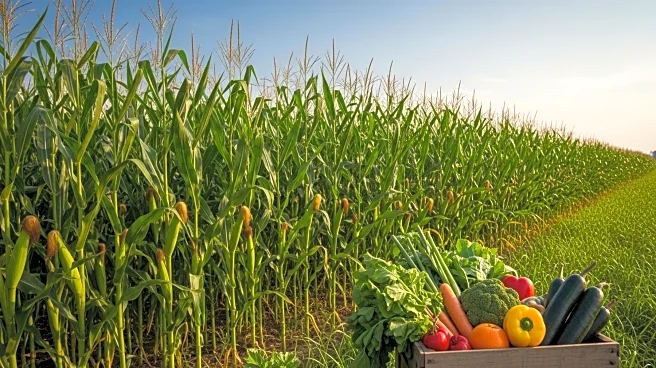What's Happening?
A recent survey conducted by the Iowa Department of Agriculture and Land Stewardship reveals that Iowa's specialty crop industry generated a $66.5 million economic output in 2023. The survey, which included over 850 specialty farmers, highlights the diversity and growth of the local produce industry. Iowa's specialty crops include vegetables, fruits, nuts, honey, and herbs, with direct sales amounting to $79 million in 2022. The survey also notes a significant increase in the number of honey producers and the economic contribution of value-added products like canned vegetables and wine.
Why It's Important?
The findings underscore the economic significance of Iowa's specialty crop industry, which supports local economies and contributes to the state's agricultural identity. The growth in specialty crop sales reflects increasing consumer demand for diverse and locally-sourced produce. This sector provides opportunities for small and beginning farmers, fostering agricultural innovation and sustainability. The survey results can guide policymakers in supporting specialty crop farmers, ensuring continued growth and resilience in the face of challenges.
What's Next?
With the expansion of the Choose Iowa program, the specialty crop industry is poised for further growth. The program aims to enhance marketing efforts and connect consumers with local food sources. As the industry evolves, farmers may continue to diversify their operations with agritourism and value-added products, increasing their economic impact. Policymakers and industry leaders are expected to use the survey data to develop strategies that support specialty crop farmers and address their needs.
Beyond the Headlines
The growth of Iowa's specialty crop industry highlights broader trends in agriculture, such as the shift towards local and sustainable food systems. This movement may influence cultural attitudes towards food production and consumption, encouraging more community engagement and support for local farmers. Additionally, the industry's focus on young and beginning farmers could lead to generational changes in agricultural practices, promoting innovation and sustainability.










